Fabrizio Ulivieri's Blog, page 56
March 9, 2023
Poets are forms of resonance
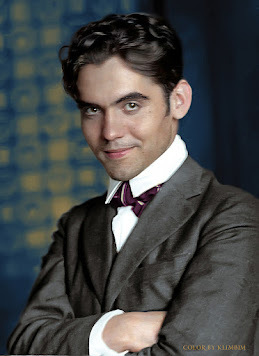
The poet is a form of resonance with respect to the astonishing the very moment he perceives it. The poet resounds in conjunction with that moment. The very moment he resonates he is urgently driven to find a way to express that resonance in which he unexpectedly finds himself centred.
Me porté como quien soy.Como un gitano legítimo.La regalé un costurerogrande de raso pajizo,y no quise enamorarmeporque teniendo maridome dijo que era mozuelacuando la llevaba al río [1]
Here the poet (Federico García Lorca), because of the deception that the woman has operated to be alone with him at night along the riverbank, after he has enjoyed her body, resounds in a vibration that takes the form of resentment:
y no quise enamorarme porque teniendo maridome dijo que era mozuelawhen he took her to the river.
---------------------------------------------
[1] I behaved like what I am,
a gipsy through and through.
I gifted her a big sewing box
made of straw-like satin,
and I didn't want to fall in love
because, having a husband
she told me she was a maiden
as I carried her to the river
March 4, 2023
Sobre aquello que es la poesía
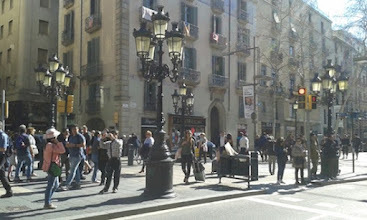
[La poesia] es algo que anda por las calles. Que se mueve, que pasa a nuestro lado
(Federico García Lorca)
La poesía se sustrae del todo. La filosofía, las matemáticas, la ciencia, la religión y la fe tienden a incluir entre sí mismas las otras. La poesía, en cambio, no está incluida ni incluye. La poesía es la expresión irrepetible de un momento o más momentos de la vida en los límites de lo expresable donde el lenguaje busca sin pausa con pasión y sin cesar la posibilidad de expresar lo que no puede ser expresado por ninguna de las otras actividades humanas. La filosofía no es una categoría sino la expresión incontenible de una voz que necesita salir con urgencia. La poesía es sobre todo un hecho individual y de vida cotidiana
Potessi tornare - Madre
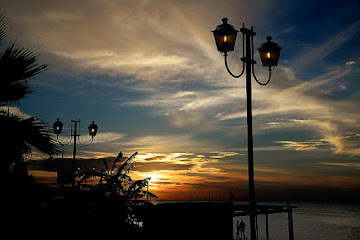
Potessi tornare
A te nei giorni in cui
Tu eri tu e io ero io.
E potessi ritornare tu
Ai giorni in cui
tu eri tu:
E potessimo allora celebrare
Del vento e del sole e della notte
Quel suono
Che rendeva noi felici
E ci ubriacava ingenui
Ma felici davvero.
E così pensavamo
le nostre vite
A un grande futuro
O almeno sereno.
Eh l‘amore - madre
Forse ora tu sai
Non ha ora
Non ha volto
Non ha tempo.
Suona un canpanello
E annuncia
„ecco arrivo“
Come quella sera
aspettavi
Come questa sera
che non aspetto
Perché la vita ha
In sè l‘eterno
E si ripete
Crudele
Inattesa
Al di là di ogni forma.
Salomėja Nėris: the compulsive obsession of disappearing - it will fal on my chest
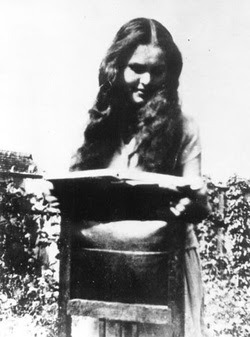
In the pagan sensibility of Salomėja Nėris, who we talked about here a few days ago, there is a theme which is constantly recurring like a nightmare: ”One day I won’t be here”. The obsession of dying.
This excruciating poem is one of the many examples.
Manęs dar nebuvo -
Alyvos žydėjo - -
Manęs nebebus jau -
Jos vėliai žydės -
Ir kris jų lapeliai
Nuo saulės ir vėjo,
Kaip smėlio saujelės,
Ant mano širdies -
No, I wasn't there
when the lilac bloomed
No, no sign of me will be there
when it again will bloom
and the little leaves will fall
of sun and wind they will die
and handfuls of sand
will fall on my chest
La menzogna porta alla nostra autodistruzione
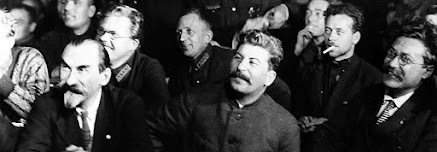
Secondo Sant' Agostino mentire è innanzitutto, un‘intenzione dell‘animo e non dipende dalla cosa in sé. Ex animi enim sui sententia, non ex rerum ipsarum veritate vel falsitate mentiens aut non mentiens iudicandus est [1]
Le osservazioni di Agostino sono valide perché sono fatte in riferimento alla coscienza, ovvero a ciò che enuncia ciò che è male o bene.
Ma che succede quando questo punto di riferimento si annulla e la coscienza come tale, in sé e per sé, viene a mancare, perché vengono a mancare, sono evaporati, i valori di riferimento che segnalano ciò che è bene o male?
Questa situazione si attua quando chi mente, vivendo in un ambiente, in una società in cui la menzogna è il fondamento stesso di quella società, entra a far parte di quel sistema costante e reiterato in maniera parossistica di menzogna per cui chi mente mente in modo così costante esasperato ed estremo che alla fine non sa nemmeno più di mentire [2], e viene a mancare il fondamento stesso dell‘affermazione di Agostino per cui per mentire ci deve essere l‘intenzione di mentire.Giorgio Agamben in un intervento del suo blog [3] ce lo spiega bene con un esempio: “negli anni del Covid, i ministri, i medici e gli esperti che mentivano hanno finito col credere a tal punto alle loro menzogne che, smarrendo ogni coscienza della verità, hanno potuto calpestare senza alcuno scrupolo i principi più elementari dell’umanità. Una società che perde ogni coscienza della soglia che separa il vero dal falso diventa letteralmente capace di tutto, anche di distruggersi“
------------------------------------
[1] DE MENDACIO LIBER UNUS 3,3 "Da ciò che enuncia il proprio animo, e non dalla verità o falsità della cosa in sé si deve giudicare chi mente o chi non mente"[2] Giorgio Agamben Sul mentitore che non sa di mentire: "Stalin e i suoi sottoposti mentono sempre, in ogni istante, in ogni circostanza; e poiché mentono sempre, non sanno nemmeno più di mentire. E quando ognuno mente, nessuno più mente mentendo"[3] Ibid.
Lying leads to our self-destruction

According to St. Augustine, lying is above all an intention of the soul and does not depend on the thing-in-itself. Ex animi enim sui sententia, non ex rerum ipsarum veritate vel falsitate mentiens aut non mentiens iudicandus est [1]
Augustine's observations are valid because they are made with reference to conscience, that is, to what enunciates an indication in order to distinguish what is good and what is bad.
But what is going to happens when this medium of reference vanishes and consciousness as such, in-itself, is missing, because the reference values that signal what is good or bad are vanished, evaporated?
The very tenet of Augustine that in order to lie there must be the intention to lie has become invalid. Because whoever lies, living in an environment, in a society in which lying is the very foundation of that society, becomes part of that constant and paroxysmal reiterated system of lies yo such extent that he lies in a so constant exasperated and extreme way that in the end he doesn't even know perceive and acknowledges any longer he's lying [2].
Giorgio Agamben in an entry on his blog [3] explains it well with an example: "in the years of Covid, the ministers, doctors and experts who lied ended up believing their lies to such an extent that they completely lost conscience of the truth, and therefore they have been able to trample, without any scruple, on the most elementary principles of humanity. A society that loses its entire awareness of the threshold that separates the true from the false literally becomes capable of anything, even of destroying itself.
------------------------------------
[1] DE MENDACIO LIBER UNUS 3,3 "From what one's soul proclaims, and not from the truth or falsehood of the thing-in-itself one must judge who lies or who does not"
[2] Giorgio Agamben Sul mentitore che non sa di mentire: "Stalin and his subordinates always lie, in every moment, in every circumstance; and since they always lie, they don't even know they're lying anymore. And when everyone lies, no one lies anymore by lying "
[3] Ibid.
February 27, 2023
Praying to Lithuania - Salomėja Nėris the most beautiful voice of Lithuanian poetry

Lithuania is a land that many do not even know where it is. A land of long winters and short summers, of snow and frost, ice cold wind and rain and scarce sunshine.One of the birds, present almost everywhere, ungainly, that plagues cities and countryside is the crow. Its cawing is everywhere, his scratching under the trees in a perennial search of scarce food, in a land so stingy with the sun, is almost ruthless.And it is surprising that this animal and this nation can be sung by poetry, by an equally tormented poetess: Salomėja Nėris. A poet who, it is said, betrayed her homeland to be on Stalin's side. But her poems exude a sacred love for her land which she celebrates in a pagan way, turning the natural elements into sacred entities that speak to blood and bones of every living creature,
Here is an example of her poetry, of her great love and the nostalgic nostos, the merciless but nonetheless yearned-for return that will welcome her post-mortem.A beautiful example of poetry that confirms, even in such an insensitive and cold region that poetry is the Sisyphean effort to bring the inexpressible to expression, the beauty of emotions in front of the wonder of the human being who questions himself and seeks answers.
A beautiful voice difficult to translate, I can only give an approximative idea of her way of singing and praying to and for Lithuania.
Bring, black raven, the message to my native home
Shouldn't I return,
Shouldn't I lay in that fertile,
cold and foreign land...
Why am I not a whip
swaying in the wind,
or the Nemunas [1] gravel
in the darkness of its entrails?
Whatever you want, I would be there:
a step at the threshold, -
let my face
be carved by suffering.
Little houses, little houses
I would bow to you
like a beggar to the echoes
furtively passing by
And if I didn't come back
my trampled and fateless chapel
wouldn't they, my friends, find it, here
through the dark forest,
through the foreign country
fly high my song,
fly to my beloved land!
[1] The most important river of Lithuania
---------------------------------------------------------------------
Lithuanian text:
„Parneški, juodas varne, žinią į mano gimtinius namus...“
Jei aš nesugrįžčiau,
jei likčiau gulėti
toj žemėj derlingoj,
šaltoj, svetimoj...
Kodėl aš ne rykštė,
linguojanti vėtroj,
ar Nemuno žvirgždas
gelmių sutemoj?
Kuo nori, ten būčiau:
pakopa prie slenksčio, –
tegu mano veidą
bedildo kančia.
Nameliai namučiai,
aš jums nusilenkčiau
kaip elgeta aidams
pro šalį vagčia.
Jei niekad negrįžtau...
Ir mano kapelio
suminto bedalio
draugai čia nerastų, –
per gūdųjį mišką,
per svetimą šalį
tu skriski, dainele,
į mylimą kraštą!
February 26, 2023
Subscribe my Substack Channel
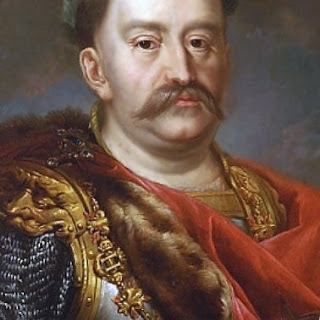
What you will read in this place (stories, analyses, poetry) is my vision of truth and writing. My vision that a writer must be what his books are. A soccer player cannot be a soccer player and a trainer and a public relation agent at the same time. He must be a soccer player, just a soccer player if he tries to be a good soccer player.
There are too many people around the web that are journalist & writer, psychologist & writer, lawyer & writer...too many "...& writers". Too many "...& writers" who talk everywhere: YouTube, Rumble, TV, radio...and many of them often talk better than they write.
I had some disappointing experiences with publishers and in the end, I decided to give for free my works my thoughts and my intentions to people who are really interested in them.
Here are my books, which can be downloaded and read.
Why do I do this? Because I have no obligations because I can finally be what I am without being conditioned by anything and anyone I have not to pretend to be what I am not because I do not have to go to a youtube channel, speak well and beg for money as the entire world is now doing, but I can sit down in front of my computer and possibly write well and hopefully good stories.
Subscribe to get full access to the newsletter and website. Never miss an update.
February 25, 2023
How God shows evil and uses it as Good - ad docendum
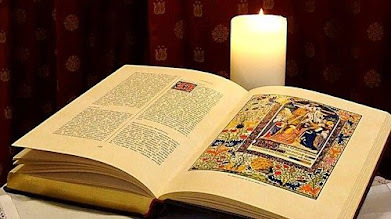
Omnis Scriptura divinitus inspirata est et utilis ad docendum, ad arguendum, ad corrigendum, ad erudiendum in iustitia
All scripture is given by inspiration of God, and is profitable for doctrine, for reproof, for correction, for instruction in righteousness (2 Timothy 3:16)
Usually, it seems that God's action is not present in history, but this turns out to be true only for those who do not know how to read the structure of God's work, the way He structures his signs. In fact, as Augustine clarifies, God, in this world, let deliberately the devil operate, a wicked essence by his choice (diabolus voluntate sua malus), so that good may arise from evil: [Deus] fecit, ut diabolus institutione illius bonus, voluntate sua malus [. ..] id est, ut prosint temptationes eius sanctis, quibus eas obesse desiderat, [God] created the devil good by his order, but wicked essence by his choice, in such a way that his temptations would benefit the saints, with respect to whom [the Saints] he wants those temptations to do harm.
The Saints in fact are the manifestation on earth, the ostensible appearance, of the Postulate (God) that makes us feel and perceive what is unveiling itself as a reality postulated beyond reality. The saints, like the prophets, ultimately are the resonance of that Postulate in our history.
Quoniam Deus, cum eum conderet, futurae malignitatis eius non erat utique ignarus et praevidebat quae bona de malo eius esset ipse facturus, since God, in creating the Devil, being aware of his wickedness, foresaw how to turn evil into good.
And in order to do so, God uses Saints, prophets, Holy Scriptures and signs to breathe out his Presence into the History of this world.
(The present analysis is referring to De Civitate Dei XI, 17)
Only poetry can grasp the human depth of emotion and feeling - around a Pierpaolo Pasolini's Poem
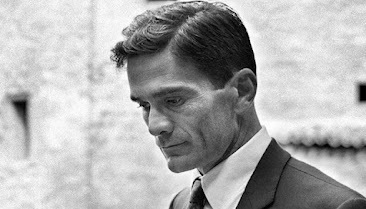
Pasolini wrote this poem (MORTE DI UN FANCIULLO - Death of a child) when he was very young and lived in Casarsa. He wrote it after the death of a child of the same age.
Reading the poem, where some of Pasolini's stylistic elements are already recognizable (the forms in -uccio, -cello, -cino for example, and some words such as "antico","beato" to which he later preferred "santo"...) it is immediately strong and immediately catches the eye as only poetry can and puts human beings on the road to find a way to express what is almost inexpressible and ungraspable due to its depth. Poetry is the only means available to human beings to give substance to the tearing apart of suffering we suffer or to the exaltation of an unexpected joy that occurs inside.
The child has died but the world goes on and the poet thus expresses the almost-nothing of the human being with respect to the creation. Only the moon seems to notice its absence
Ma questa sera la lontana luna
sbianca la dolce casa a un morticino.
whitens the sweet home of this poor and little dead child.
And the stars also seem to devote to him, the little poor dead child, an eternal yet different night in his eternity
Notti e giorni infiniti, voi, stelluccie,
conducevate intorno alla sua casa;
ma a lui, soltanto questa notte è eterna,
Infinite nights and days, you, little stars,
you led around his house;
but to him and only to him, this night becomes eternal
And facing the mystery of death, the poet searches for the best words to express that silence of an eternity that seems far and unapproachable. And he finds those impossible words in a rhetorical question that can't encounter an answer except in making resonate that almost-nullity compared to The Everything.
Ed ora dove sei che tutto è pace
nel tuo chiaro visuccio e, se qui intorno
si parla e piange e fuori brilla il cielo
con le piccole stelle, tu raccolto
con le mani nel seno sei silenzio?
And now where are you, now that all is peace
in your now clear visage and, if around here
we talk and weep and the sky shines outside
with the little stars, you curled up
with your hands on your breasts, you still and silent?
But that almost-nullity, almost indifferent for The Created Universe, the poet finally realizes, is alive! It is decanted, in the slow passing by of the days they had together, it is decanted and transferred to him, to the poet, and in him, embodied is alive, in flesh and in thoughts he carries it on.
Io sono morto, perso nel passato,
con tutte le mattine che ritornano
sul lettuccio del bimbo appena sveglio;
ed io così, per nove anni, lieto,
pregavo Iddio con l’orecchio attento
ai suoni familiari del mattino.
I'm dead, lost in the past,
with every morning returning
on the bed of the baby who has just woken up;
and I thus, for nine years, happy,
I prayed to God with an attentive ear
to the familiar sounds of the morning.
Here is the entire poem in Italian:
MORTE DI UN FANCIULLO
È breve, stelle, nel cielo infinito
il vostro viaggio intorno alla sua casa.
Eccovi a sera terse tra le nubi
e per tutta la notte ardete fitte
sopra il pozzo, i fienili e gli orticelli.
Ma questa sera la lontana luna
sbianca la dolce casa a un morticino.
Era vivo e beato, ma il silenzio
del cielo e del creato dice spenta
quella lieve esistenza di fanciullo.
Notti e giorni infiniti, voi, stelluccie,
conducevate intorno alla sua casa;
ma a lui, soltanto questa notte è eterna,
questa notte che voi senza mutare
punto la vostra luce nei lontani
cieli e le nubi, volgete ad oriente
verso la cara luce del mattino.
Nella camera antica con le travi
del soffitto lontano, l’ombra è triste
e sa di dolci notti, non remote,
ma sperdute con favole leggere
nel passato del bimbo. Lo sapevo,
io, quel passato, ma ora solo duole
che un solo istante sotto l’immutata
luce degli astri e il canto della notte,
l’ha travolto dai vivi in un silenzio
inumano, sperduto, sterminato.
E queste vecchie intorno alla tua muta
madre non sanno che gridare a Dio:
«Ah, meraviglia». Ed anche tu nel letto
dove ora soletto e bianco geli.
«Ah, meraviglia, muoio» mormoravi
perdendoti, tra i vivi, nella morte.
Ed ora dove sei che tutto è pace
nel tuo chiaro visuccio e, se qui intorno
si parla e piange e fuori brilla il cielo
con le piccole stelle, tu raccolto
con le mani nel seno sei silenzio?
«O cara e silenziosa e triste luce
della mattina che si scioglie lenta
dai fianchi delicati delle nubi,
che colori, che fumi e che freschezza
spazii nel cielo sopra i dolci tetti!
Io sono morto, perso nel passato,
con tutte le mattine che ritornano
sul lettuccio del bimbo appena sveglio;
ed io così, per nove anni, lieto,
pregavo Iddio con l’orecchio attento
ai suoni familiari del mattino.»



